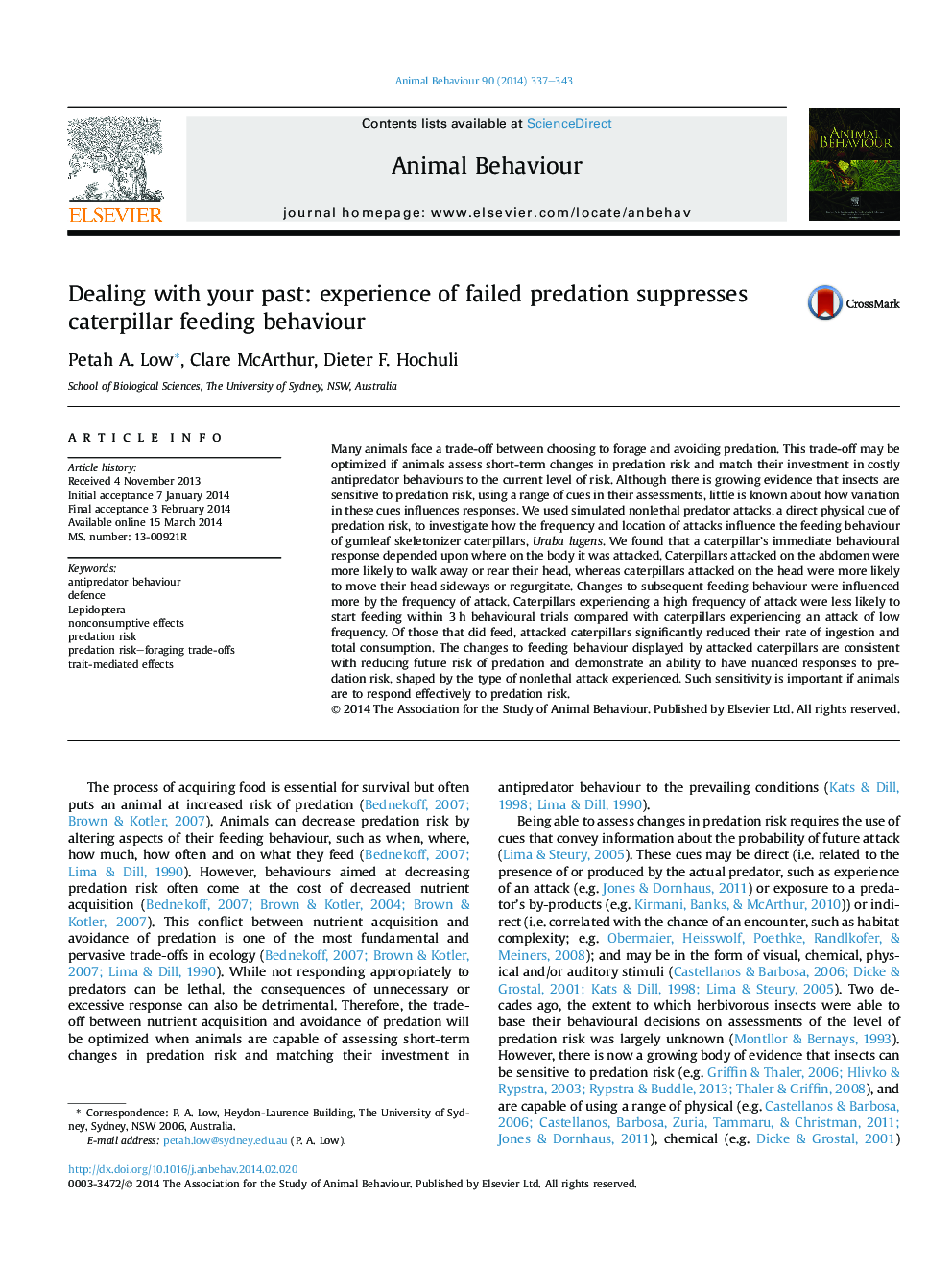| کد مقاله | کد نشریه | سال انتشار | مقاله انگلیسی | نسخه تمام متن |
|---|---|---|---|---|
| 2416405 | 1552238 | 2014 | 7 صفحه PDF | دانلود رایگان |
• We investigated how failed predator attacks affected caterpillar behaviour.
• Location of attack on the body influenced immediate behavioural responses.
• Attack frequency influenced probability of subsequently starting to feed.
• Attacked caterpillars reduced ingestion rate and total consumption.
• Caterpillars demonstrated nuanced responses that probably reduce future risk.
Many animals face a trade-off between choosing to forage and avoiding predation. This trade-off may be optimized if animals assess short-term changes in predation risk and match their investment in costly antipredator behaviours to the current level of risk. Although there is growing evidence that insects are sensitive to predation risk, using a range of cues in their assessments, little is known about how variation in these cues influences responses. We used simulated nonlethal predator attacks, a direct physical cue of predation risk, to investigate how the frequency and location of attacks influence the feeding behaviour of gumleaf skeletonizer caterpillars, Uraba lugens. We found that a caterpillar's immediate behavioural response depended upon where on the body it was attacked. Caterpillars attacked on the abdomen were more likely to walk away or rear their head, whereas caterpillars attacked on the head were more likely to move their head sideways or regurgitate. Changes to subsequent feeding behaviour were influenced more by the frequency of attack. Caterpillars experiencing a high frequency of attack were less likely to start feeding within 3 h behavioural trials compared with caterpillars experiencing an attack of low frequency. Of those that did feed, attacked caterpillars significantly reduced their rate of ingestion and total consumption. The changes to feeding behaviour displayed by attacked caterpillars are consistent with reducing future risk of predation and demonstrate an ability to have nuanced responses to predation risk, shaped by the type of nonlethal attack experienced. Such sensitivity is important if animals are to respond effectively to predation risk.
Journal: Animal Behaviour - Volume 90, April 2014, Pages 337–343
